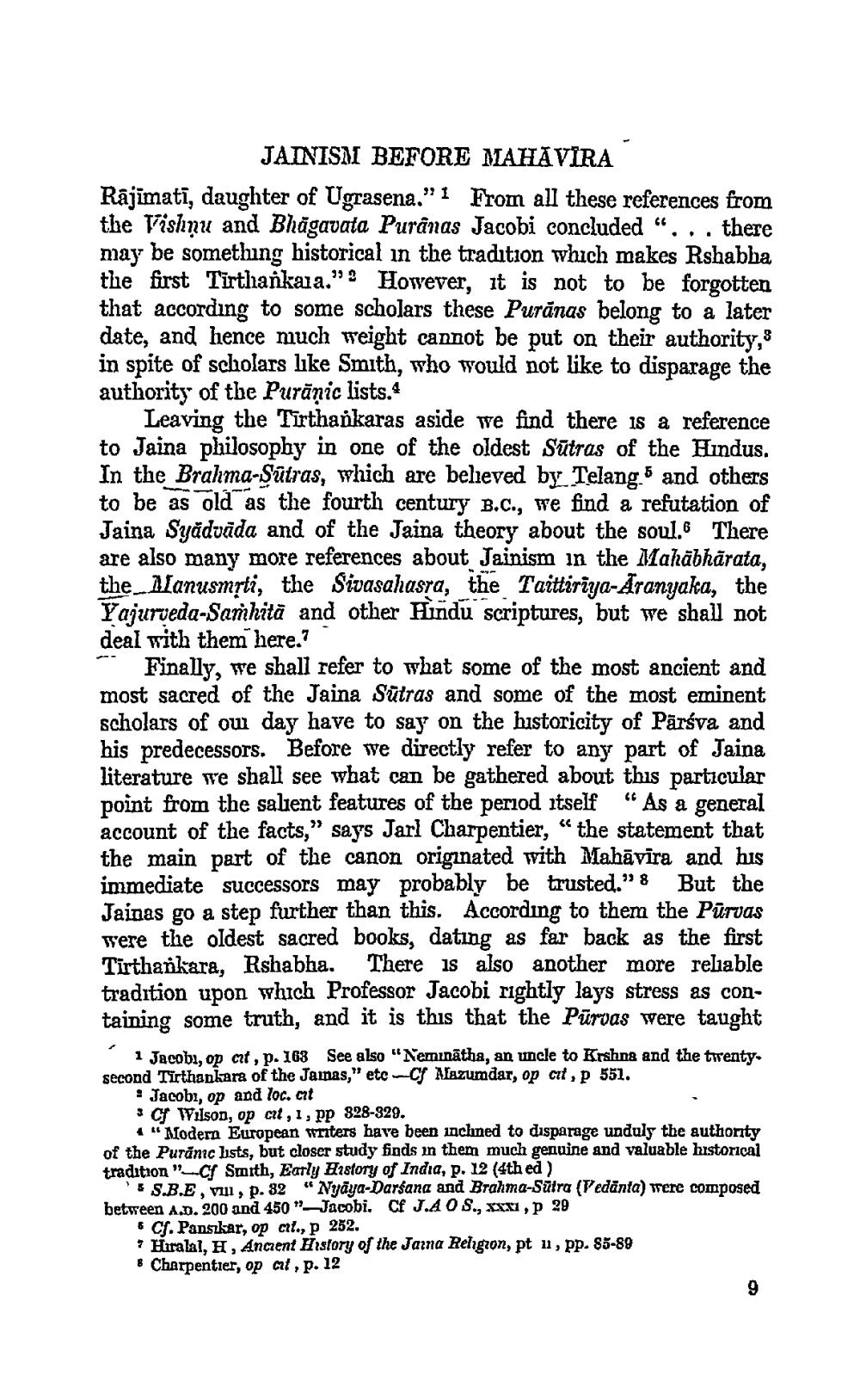________________
JAINISM BEFORE MAHAVIRA Rajimatī, daughter of Ugrasena."1 From all these references from the Vishnu and Bhagavata Puranas Jacobi concluded “... there may be something historical in the tradition which makes Rshabha the first Tirthankara."? However, it is not to be forgotten that according to some scholars these Purānas belong to a later date, and hence much weight cannot be put on their authority, in spite of scholars like Smith, who would not like to disparage the authority of the Purānic lists.
Leaving the Tirtharkaras aside we find there is a reference to Jaina philosophy in one of the oldest Sutras of the Hindus. In the Brahma-Sutras, which are believed by Telang 5 and others to be as old as the fourth century B.C., we find a refutation of Jaina Syádvāda and of the Jaina theory about the soul. There are also many more references about Jainism in the Mahābhārata, the_Alanusmrti, the Sivasahasra, the Taittiriya-Aranyaka, the Yajurveda-Samhita and other Hindu scriptures, but we shall not deal with them here.?
Finally, we shall refer to what some of the most ancient and most sacred of the Jaina Sutras and some of the most eminent scholars of our day have to say on the historicity of Pārsva and his predecessors. Before we directly refer to any part of Jaina literature we shall see what can be gathered about this particular point from the salient features of the period itself “As a general account of the facts," says Jarl Charpentier, “the statement that the main part of the canon originated with Mahāvīra and his immediate successors may probably be trusted.” 8 But the Jainas go a step further than this. According to them the Pūrvas were the oldest sacred books, dating as far back as the first Tirthankara, Rshabha. There is also another more reliable tradition upon which Professor Jacobi rightly lays stress as containing some truth, and it is this that the Pūrvas were taught
1 Jacobi, op at, p. 168 See also "Neminātha, an uncle to Krshna and the twentysecond Tirthanbara of the Jainas," etc - Alazumdar, op cit, p 551.
• Jacobi, op and loc. ct 3 C Wilson, op at, 1, PP 828-329.
1 "Modern European writers have been inchned to disparage unduly the authorty of the Purānic lists, but closer study finds in them much genuine and valuable historical tradition " C Smith, Early History of India, p. 12 (4th ed)
'S S.B.E, v , p. 82" Nyāya-Darsana and Brahma-Sutra (Vedānta) were composed between A.D. 200 and 450"-Jacobi. Cf J.A O S., XXX1, p 29
& Cf. Panskar, op al., p 252.
Hiralal, H, Ancient History of the Jarna Religron, pt 11, pp. 85-89 $ Charpentier, op at, p. 12




